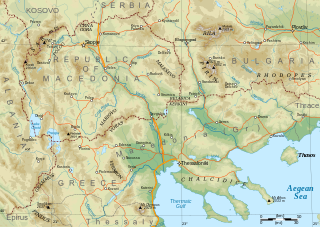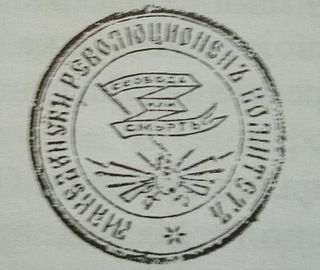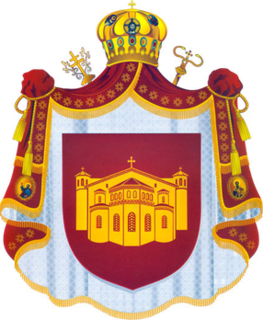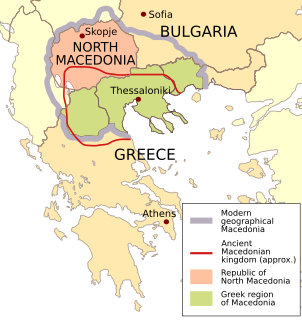The following is a list of radio stations in North Macedonia.
The following is a list of radio stations in North Macedonia.
| Name |
|---|
| Antenna 5 |
| Kanal 77 |
| Makedonsko Radio 1 |
| Makedonsko Radio 2 |
| Makedonsko Radio 3 |
| Metropolis Radio |
| Place | Name | Frequency (MHz) |
|---|---|---|
| Berovo | Radio Sky | 101,0 |
| Bitola | Radio 105 Aktuel Bombarder | 105,0 |
| Radio 106 | 106,6 | |
| Radio B-97 | 94,4 | |
| Radio Bitola | 89,8 95,8 | |
| Radio Delfin | 105,0 | |
| Centar Župa | Radio Semi | 103,0 |
| Debar | Radio Marilyn | 104,7 |
| Delčevo | Radio Tigar | 93,8 |
| Dolneni | Radio Besa | 107,6 |
| Radio Rinia 2000 | 107,2 | |
| Gevgelija | Radio Time FM | 93,6 |
| Gostivar | Pro FM | 89,3 |
| Radio Kometa | 106,4 | |
| Kavadarci | Radio Galaxy | 102,2 |
| Radio Hot FM | 99,1 | |
| Radio Kavadarci | 99,1 | |
| Kičevo | Radio Akord | 96,5 |
| Radio Aleksandar Makedonski | 106,0 | |
| Radio Kale | 100,0 | |
| Kočani | Radio Rosa | 98,1 99,5 |
| Kumanovo | City FM | 97,9 |
| Radio Albana Kumanovë | 99,3 | |
| Radio Bravo | 88,5 | |
| Radio Jehona | 103,5 | |
| Radio KMR | 104,2 | |
| Radio Viva | 95,0 | |
| Makedonski Brod | Radio Moris | 100,2 |
| Mavrovo and Rostuša | Radio Emi | 93,7 |
| Radio Mis | 103,5 | |
| Negotino | Energy Radio | 91,7 |
| Negotino | Radio Miks | 100,5 |
| Ohrid | MX Radio | 101,2 |
| Radio Lav | 91,5 | |
| Radio Ohrid | 89,0 | |
| Super Radio | 97,0 | |
| Pehčevo | Radio Pehčevo | 100,0 |
| Plasnica | Radio Mis | 103,0 |
| Prilep | Radio 5 Čoki | 89,5 |
| Prilep | Radio Holiday | 102,1 |
| Radio Meff | 98,7 | |
| Radio Ternipe | 90,3 | |
| Radoviš | Alfa Radio | 98,3 |
| Skopje | Radio HIT | Internet Radio |
| Club FM | 103,4 | |
| Star Radio Narodna | Internet Radio | |
| Jazz FM | 100,8 | |
| Kanal 103 | 103,0 | |
| Life Radio | 89,1 | |
| Star Radio | Internet | |
| Radio Bubamara | 105,2 | |
| Radio Classic FM | 90,8 | |
| Radio Fortuna | 96,8 | |
| Radio Haracina | 99,9 | |
| Radio Ravel | 96,0 | |
| Radio Vati | 88,4 | |
| Sky Radio | 102,5 | |
| Sportsko radio | 90,3 | |
| Sportsko Radio Kanal 4 | 107,4 | |
| Zona M1 Radio | 104,4 | |
| Struga | Radio Drini | 101,6 |
| Radio 102KA | 102,2 | |
| Radio Rrapi | 107,5 | |
| Play Radio | 90,4 | |
| Strumica | Ekspres Radio | 101,1 |
| Hit Radio | 88,1 | |
| Sveti Nikole | Radio Sveti Nikole | 87,8 |
Radio Modea | 97,7 | |
| Štip | Radio Čerenja | 106,4 |
| Radio Štip | 98,6 99,2 | |
| Tetovo | Radio Bleta | 101,4 |
| Radio Fama Tetovë | 97,5 | |
| Radio Focus Tetovë | 98,0 | |
| Radio Kiss | 104,7 | |
| Radio PlusForte | 102,3 | |
| Radio Tetovo | 93,5 | |
| Radio Visari | 103,6 | |
| Veles | 5 FM | 107,1 |
| CBM Radio | 96,2 | |
| CD Radio | 96,7 | |
| Radio Goldi | 103,0 | |
| Vinica | Radio La Kosta | 103,3 |

Alexander III of Macedon, commonly known as Alexander the Great, was a king of the ancient Greek kingdom of Macedon. At the age of 20, he succeeded his father, Philip II of Macedon, to the throne upon the latter's assassination at the wedding of Cleopatra of Macedon in October 336 BC. Beginning shortly after his father's death, he spent most of his ruling years conducting a lengthy military campaign throughout Western Asia and Egypt, Central Asia, and South Asia. By the age of 30, he had created one of the largest empires in history, stretching from the Balkans in the west to India in the east. He was undefeated in battle and is widely considered to be one of the greatest and most successful military commanders in history.

The Balkans, also known as the Balkan Peninsula, is a geographic area in southeastern Europe with various geographical and historical definitions. The region takes its name from the Balkan Mountains that stretch throughout the whole of Bulgaria. The Balkan Peninsula is bordered by the Adriatic Sea in the northwest, the Ionian Sea in the southwest, the Aegean Sea in the south, the Turkish Straits in the east, and the Black Sea in the northeast. The northern border of the peninsula is variously defined. The highest point of the Balkans is Mount Musala, 2,925 metres (9,596 ft), in the Rila mountain range, Bulgaria.
Macedonian is an Eastern South Slavic language. It is part of the Indo-European language family, and is one of the Slavic languages, which are part of a larger Balto-Slavic branch. Spoken as a first language by around two million people, it serves as the official language of North Macedonia. Most speakers can be found in the country and its diaspora, with a smaller number of speakers throughout the transnational region of Macedonia. Macedonian is also a recognized minority language in parts of Albania, Bosnia and Herzegovina, Romania, and Serbia and it is spoken by emigrant communities predominantly in Australia, Canada and the United States.

Macedonia is a geographical and historical region of the Balkan Peninsula in Southeast Europe. Its boundaries have changed considerably over time; however, it came to be defined as the modern geographical region by the mid 19th century. Today the region is considered to include parts of six Balkan countries: larger parts in Greece, North Macedonia, and Bulgaria, and smaller parts in Albania, Serbia, and Kosovo. It covers approximately 67,000 square kilometres (25,869 sq mi) and has a population of 4.76 million.

Skopje is the capital and largest city of North Macedonia. It is the country's political, cultural, economic, and academic centre.

Macedonia, also called Macedon, was an ancient kingdom on the periphery of Archaic and Classical Greece, and later the dominant state of Hellenistic Greece. The kingdom was founded and initially ruled by the royal Argead dynasty, which was followed by the Antipatrid and Antigonid dynasties. Home to the ancient Macedonians, the earliest kingdom was centered on the northeastern part of the Greek peninsula, and bordered by Epirus to the west, Paeonia to the north, Thrace to the east and Thessaly to the south.

Macedonians are a nation and a South Slavic ethnic group native to the region of Macedonia in Southeast Europe. They speak Macedonian, a South Slavic language. About two-thirds of all ethnic Macedonians live in North Macedonia and there are also communities in a number of other countries.

The Internal Macedonian Revolutionary Organization was a secret revolutionary society in the Ottoman territories in Europe, that operated in the late 19th and early 20th centuries.

The North Macedonia national football team represents North Macedonia in men's international football, and is administered by the Football Federation of Macedonia. The team play their home matches at the Toše Proeski National Arena in Skopje.

Macedonia most commonly refers to:
Southeast Europe or Southeastern Europe (SEE) is a geographical subregion of Europe, consisting primarily of the Balkans. Sovereign states and territories that are included in the region are, in alphabetical order: Albania, Bosnia and Herzegovina, Bulgaria, Croatia, Cyprus, Greece, Kosovo, Montenegro, North Macedonia, Romania, Serbia, and Turkey. Sometimes, Moldova and Slovenia are also included. The largest city of the region is Istanbul, followed by Bucharest, Sofia, Belgrade, and Athens.

The Socialist Republic of Macedonia, or SR Macedonia, commonly referred to as Socialist Macedonia or YugoslavMacedonia, was one of the six constituent republics of the post-World War II Socialist Federal Republic of Yugoslavia, and a nation state of the Macedonians. After the transition of the political system to parliamentary democracy in 1990, the Republic changed its official name to Republic of Macedonia in 1991, and with the beginning of the breakup of Yugoslavia, it declared itself an independent country and held a referendum on 8 September 1991 on which a sovereign and independent state of Macedonia, with a right to enter into any alliance with sovereign states of Yugoslavia was approved.

The Football Federation of Macedonia or Football Federation of North Macedonia is the governing body of football in North Macedonia based in Skopje.

The Macedonian Orthodox Church – Archdiocese of Ohrid, also called Macedonian Orthodox Church – Ohrid Archbishopric (MOC-OA) or simply the Macedonian Orthodox Church (MOC), is an autocephalous Eastern Orthodox church in North Macedonia. The Macedonian Orthodox Church claims ecclesiastical jurisdiction over North Macedonia, and is also represented in the Macedonian diaspora. The primate of the Macedonian Orthodox Church is Stefan Veljanovski, the Metropolitan of Skopje and Archbishop of Ohrid and Macedonia and of Justiniana Prima.

The Macedonians were an ancient tribe that lived on the alluvial plain around the rivers Haliacmon and lower Axios in the northeastern part of mainland Greece. Essentially an ancient Greek people, they gradually expanded from their homeland along the Haliacmon valley on the northern edge of the Greek world, absorbing or driving out neighbouring non-Greek tribes, primarily Thracian and Illyrian. They spoke Ancient Macedonian, which was either a sibling language to Ancient Greek or a Doric Greek dialect, although the prestige language of the region was at first Attic and then Koine Greek. Their religious beliefs mirrored those of other Greeks, following the main deities of the Greek pantheon, although the Macedonians continued Archaic burial practices that had ceased in other parts of Greece after the 6th century BC. Aside from the monarchy, the core of Macedonian society was its nobility. Similar to the aristocracy of neighboring Thessaly, their wealth was largely built on herding horses and cattle.

Macedonia is a geographic and former administrative region of Greece, in the southern Balkans. Macedonia is the largest and second-most-populous Greek geographic region, with a population of 2.36 million in 2020. It is highly mountainous, with most major urban centres such as Thessaloniki and Kavala being concentrated on its southern coastline. Together with Thrace, and sometimes also Thessaly and Epirus, it is part of Northern Greece. Greek Macedonia encompasses entirely the southern part of the wider region of Macedonia, making up 51% of the total area of that region. Additionally, it forms part of Greece's borders with three countries: Bulgaria to the northeast, North Macedonia to the north, and Albania to the northwest.

Macedonian nationalism is a general grouping of nationalist ideas and concepts among ethnic Macedonians that were first formed in the late 19th century among separatists seeking the autonomy of the region of Macedonia from the Ottoman Empire. The idea evolved during the early 20th century alongside the first expressions of ethnic nationalism among the Slavs of Macedonia. The separate Macedonian nation gained recognition after World War II when the "Socialist Republic of Macedonia" was created as part of Yugoslavia. Afterwards the Macedonian historiography has established historical links between the ethnic Macedonians and events and Bulgarian figures from the Middle Ages up to the 20th century. Following the independence of the Republic of Macedonia in the late 20th century, issues of Macedonian national identity have become contested by the country's neighbours, as some adherents to aggressive Macedonian nationalism, called Macedonism, hold more extreme beliefs such as an unbroken continuity between ancient Macedonians, and modern ethnic Macedonians, and views connected to the irredentist concept of a United Macedonia, which involves territorial claims on a large portion of Greece, along with smaller regions of Albania, Bulgaria, Kosovo and Serbia.

The use of the country name "Macedonia" was disputed between Greece and the Republic of Macedonia between 1991 and 2019. The dispute was a source of instability in the Western Balkans for 25 years. It was resolved through negotiations between Athens and Skopje, mediated by the United Nations, resulting in the Prespa agreement, which was signed on 17 June 2018. Pertinent to its background is an early 20th-century multifaceted dispute and armed conflict that formed part of the background to the Balkan Wars. The specific naming dispute, although an existing issue in Yugoslav–Greek relations since World War II, was reignited after the breakup of Yugoslavia and the newly-gained independence of the former Socialist Republic of Macedonia in 1991. Since then, it was an ongoing issue in bilateral and international relations until it was settled with the Prespa agreement in June 2018, the subsequent ratification by the Macedonian and Greek parliaments in late 2018 and early 2019 respectively, and the official renaming of Macedonia to North Macedonia in February 2019.

North Macedonia, officially the Republic of North Macedonia, is a country in Southeast Europe. It gained independence in 1991 as one of the successor states of Yugoslavia. It is a landlocked country bordering Kosovo to the northwest, Serbia to the north, Bulgaria to the east, Greece to the south, and Albania to the west. It constitutes approximately the northern third of the larger geographical region of Macedonia. Skopje, the capital and largest city, is home to a quarter of the country's 1.83 million population. The majority of the residents are ethnic Macedonians, a South Slavic people. Albanians form a significant minority at around 25%, followed by Turks, Romani, Serbs, Bosniaks, Aromanians and a few other minorities.

The Argead dynasty, also known as the Temenid dynasty, was an ancient Macedonian royal house of Dorian Greek provenance. They were the founders and the ruling dynasty of the kingdom of Macedon from about 700 to 310 BC.